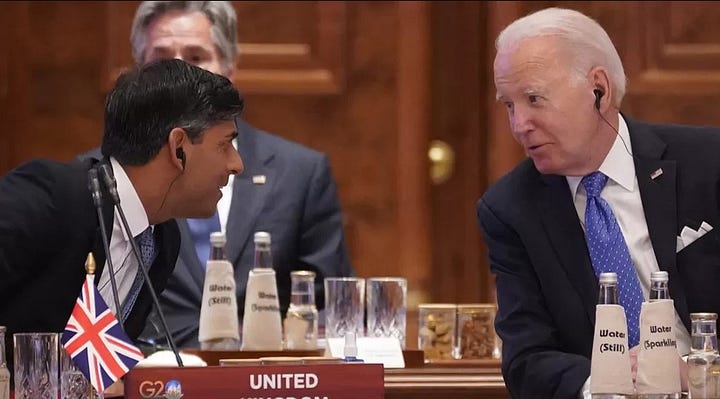
Western Diplomats Strive to Avert Wider Fallout from Canada-India Dispute
Efforts are underway to prevent the ongoing diplomatic dispute between Canada and India from souring other international relationships. Western nations, particularly the United States, are eager to avoid a division with India, recognizing its significance on the global geopolitical stage.
India holds a crucial role for several reasons. It boasts the world’s largest population and ranks as the fifth-largest economy, making it an emerging powerhouse. Furthermore, Western countries view India as a potential ally in countering the influence of China, considering it a strategic partner.
This sentiment was evident at the recent G20 meeting held in India, where Western allies of Ukraine opted not to explicitly condemn Russia for its invasion in their final communique. The decision was made to safeguard their relationship with India, a choice that drew criticism from some in Kyiv.
Another concern for Western diplomats is the risk of countries taking sides in the Canada-India dispute. Tensions escalated significantly when Canadian Prime Minister Justin Trudeau accused India of involvement in the assassination of a Sikh activist in western Canada in June.
In recent months, India has been positioning itself as a leader among developing nations, often referred to as the Global South. Many of these nations have refrained from condemning Russia’s invasion of Ukraine. The United States and some European countries have been diligently courting these countries, emphasizing the importance of the war to their economies.
Diplomats are keen to avoid the narrative of this dispute being portrayed as a North vs. South battle between two Commonwealth nations or a showdown between a transatlantic power and a developing nation. Prime Minister Trudeau has already raised the issue with US President Joe Biden and British Prime Minister Rishi Sunak.
For now, Canada’s allies are expressing concern while maintaining a cautious approach. The White House has voiced deep concern over the murder allegations and called for a thorough investigation.
Countries like the UK and Australia, which have substantial Sikh communities, are closely monitoring the situation, recognizing the potential for domestic political repercussions. UK Foreign Secretary James Cleverly emphasized the UK’s commitment to listening to Canada’s concerns and stated that further action would depend on the outcome of the Canadian investigation.
Australia’s foreign ministry also expressed deep concern and conveyed these concerns to Indian authorities at senior levels. As the investigation unfolds, Western nations will observe the developments closely.
While some allies may gain access to Canadian intelligence, the situation could change dramatically if concrete evidence emerges. In such a scenario, Western powers would face the difficult choice of supporting Ottawa or New Delhi, potentially prioritizing the principle of the rule of law over realpolitik considerations.
Historically, Western nations have condemned alleged extraterritorial assassinations carried out by countries like Russia, Iran, or Saudi Arabia. They will strive to avoid adding India to that list.